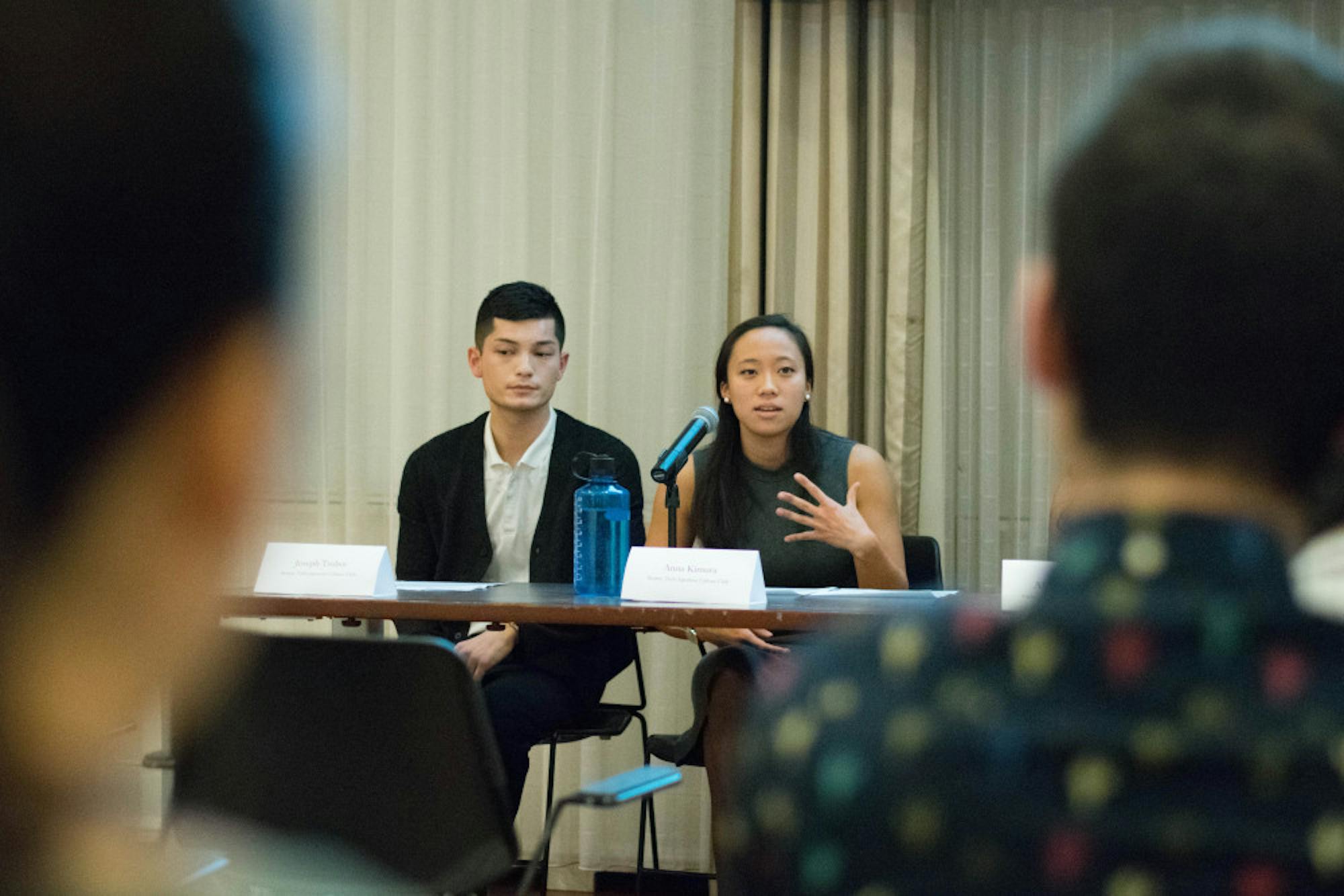Day of Remembrance: Incarceration and Resistance commemorated the signing of Executive Order 9066 by President Franklin D. Roosevelt on Feb. 19, 1942, which authorized the incarceration of Japanese-Americans. The event explored how Japanese-American incarceration during WWII affects the present day.
Day of Remembrance was held in the Alumnae Lounge, and over eighty people were in attendance. The night began with a screening of 'Resistance at Tule Lake,' a 2017 documentary directed by Konrad Aderer. By documenting the protests and resistance in the Tule Lake concentration camp, the film tells the story of Japanese-American incarceration and combats the myth that Japanese-Americans did not resist their internment.
A student-led panel discussion followed the screening. Seniors Joseph Tsuboi and Anna Kimura, members of JCC*, recounted their family connections to incarceration of people of Japanese ancestry. Sophomore Alejandra Corbella, senior Ana Manriquez and first-year Alejandro Baez, members of UIJ, shared contemporary stories relating to themes of immigration, prejudice and resistance.
"We forget that this same hate and this history is repeating itself," Corbella said.
Describing her ancestors' struggles with incarceration, Kimura drew links between incarceration in the past and the present day.
"The narrative is the same but the bodies are different. When we're talking about history, it's important to [think about] what's happening today," Kimura said.
Tsuboi shared this sentiment, discussing the persistence of silence about the history of incarceration. "I think a lot of the silences come from the fear that at any point if you were too Japanese … you could be incarcerated," Tsuboi said. "I think that fear was very much ingrained in the Japanese American community."
This paralleled Corbella's, Manriquez's and Baez's expressions of the persistent fear present in the lives of immigrants.
Corbella spoke about her home town in Texas, which has a large population of undocumented immigrants.
"The fear never stops," Corbella said. "I became aware of the struggles of immigrant bodies to survive in a constant state of surveillance."
Tsuboi described the many emotions that arise when recognizing Day of Remembrance.
"This is why I want to speak for our families up here, and for the thousands of families alike who have lived in the silences of war and the traumas of immigration and incarceration," he said. "Day of Remembrance is a grievance, but it’s also a celebration. I cannot think of this day without [feeling] angry and sad. However, I know that we must break these silences with our stories, so that our generation and the future generation can learn from this country’s injustices."
JCC* and UIJ members said they hope attendees of the event take away a solidarity between different groups and see that although World War II occurred 80 years ago, similar problems are still present today.
"A lot of the policies and legislature that was used then is being used ... today," Tsuboi said.
"Our ability to thrive despite [these traumas] is another form of resistance," Kimura said. "Today our storytelling and sharing out family stories is another act of resistance."
Manriquez referenced her parents' pasts.
"For my parents [leaving Mexico] was difficult for a lot more reasons. But even though this isn't the life they were promised, they moved forward and continue to do so today," Manriquez said. "They moved forward because seeing their children thrive is their form of resistance."
Corbella emphasized the power of sharing one's story.
"The government can take so much from me, but they cannot take away my story and they most definitely cannot take my resilience. I have learned that story telling is one of the most powerful forms of resistance and in many ways a revolutionary act," Corbella said.
Correction: This article has been updated to reflect the correct spelling of panelist Alejandro Baez's name. The Daily regrets this error.





